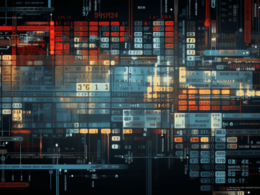As the demand for AI continues to grow, a new category of tools helping with development and deployment is emerging. One such tool is RagaAI, a California-based startup that offers a platform to test and fix AI models. Recently, the company emerged from stealth mode with $4.7 million in seed funding from various global investors, including pi Ventures, Anorak Ventures, TenOneTen Ventures, Arka Ventures, Mana Ventures, and Exfinity Venture Partners.
RagaAI, founded by former Nvidia executive Gaurav Agarwal, aims to advance research and strengthen its automated testing platform to establish a robust framework for safe and reliable AI. Agarwal stated, “Guided by our core values, we are committed to pushing the boundaries of automated AI issue detection, automated root cause analysis and fixing the issues, staying at the forefront of cutting-edge methods.” The company already serves Fortune 500 companies, assisting them in addressing issues such as bias, accuracy, and hallucinations in various use cases.
The Challenge of Building and Deploying AI
Building and deploying AI into production is a complex process. It involves gathering data, training models, and closely monitoring their performance to ensure they deliver the expected results. Even a small gap or oversight can lead to costly failures and missed opportunities.
“A small gap here or there and the whole effort comes crashing down, leading to high costs and missed opportunities,” said Agarwal.
Agarwal recognized this challenge while working with Nvidia and Indian mobility company Ola. To address this issue, he developed an automated testing platform called RagaAI. What sets RagaAI apart is that it conducts an extensive range of tests, up to 300 in total, covering a wide range of potential problems that can cause AI models to fail. These tests examine data and model issues, as well as operational gaps.
Once an issue is identified, RagaAI helps users diagnose the root cause. This can vary from biases in training data to poor labeling, data drift, suboptimal hyperparameter optimization, or a lack of model robustness against adversarial attacks. The platform then provides actionable recommendations to fix the issue, such as removing poorly labeled data points or suggesting retraining the model to address data and concept drift.
“RagaAI DNA represents vertical-specific foundational models which are custom-trained for testing purposes. This allows RagaAI to automatically add intelligence to the testing workflows,” explains Jigar Gupta, the head of product at RagaAI.
The core of RagaAI lies in its RagaDNA foundation models, which generate high-quality data embeddings. These embeddings serve as the basis for issue detection, diagnosis, and remediation.
Pioneering Safe and Transparent AI Development
RagaAI is already being used by Fortune 500 companies, including AI-first companies like LightMetrics and SatSure. These companies have witnessed the benefits of RagaAI’s platform, such as the identification of and reduction in errors in an e-commerce company’s chatbot or the improved accuracy of an automotive company’s model for detecting vehicles in low-light scenarios.
RagaAI believes its technology can significantly reduce the risks involved in AI development, potentially by up to 90%, while also accelerating the time to production by more than three times. With the recent funding, RagaAI plans to further its research and development efforts, enhance its testing and remediation platform, expand its team, and raise awareness about the importance of developing safe and transparent AI.
It is worth noting that RagaAI is not the only company working towards streamlining AI deployment. Other players like Arize and Braintrust Data are also focused on accelerating the safe deployment of AI. Additionally, observability players like Acceldata are exploring generative AI monitoring to support teams with deployment.
Considering that the AI market is projected to be a $2 trillion opportunity by 2030, it is evident that the demand for tools ensuring the safety and reliability of AI will continue to grow. RagaAI believes that a significant portion, up to 25%, of this market will be dedicated to such tools.










